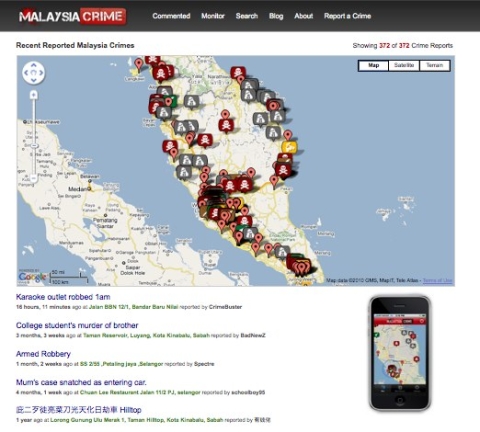
Looking at new business and funding models for independent online media at the annual OpenWebAsia conference held July 13th and 14th in Kuala Lumpur.
Looking for more background on developing sustainable business models for the independent online media in the region, I attended the Open Web Asia conference that was held in Kuala Lumpur this past week. This is a semi-regular event last held in Seoul in 2008. This year’s event was sponsored by the Multimedia Development Corporation MDeC a branch of the Malaysian government responsible for the promotion of a multimedia industry in Malaysia. The conference was attended by a mix of entrepreneurs, venture capital and finance types as well as business executives from major international and regional online and mobile leaders like Yahoo!, Google, Amazon, Jobstreet, …
My first time at this conference, but attendees who attended in the past remarked that attendance and the overall mood was definitely up from past years. The regular drumbeat of positive online news definitely contributed to the mood. In the past six months, major online media deals announced include:
* Rakuten Joint Venture with PT Global to launch Rakuten in Indonesia
* Yahoo! Acquires Koprol in Indonesia
* MOL and Facebook Sign a Deal Drive Payments for Facebook Games in the Region
* Paypal and MOL Link Up to Create a Micropayments Debit Card for Malaysia
In this list of deals and ventures you begin to see some of the key themes of the conference:
ecommerce/Online Payments
Venture Funding and Localization
Social Media
In addition, there was one notable omission, advertising which was almost completely absent from the two-day’s discussion. See last week's post about the value and size of the regional online advertising market.
The conversation around ecommerce generally broke into two related tracks - the online sales of physical goods and payments for consuming online content (mostly games). Many Malaysian, Singaporean and Indonesian entrepreneurs are looking to ecommerce (online sales) to create profitable online businesses where advertising has been unable to drive sufficient revenue. Currently, in the Malaysian market there are a handful of major players in the ecommerce, storefront space – most notably eBay, and Mudah.com.my (a joint venture between Singapore Press Holdings – SPH – and Norwegian media giant Schibsted ASA). But as a whole the space is still small and underdeveloped. On the conference room floor one of the most frequently mentioned obstacles to growth was online payments. Online payments has traditionally required a credit card, but at this stage of development most Malaysians felt uncomfortable revealing this information online. A few of the Indonesian attendees voiced similar sentiments. If North America and Europe are any indication, this obstacle will fall as soon as there is something online that people want badly enough to push them over this barrier. A second obstacle and a more surprising one was fulfillment. Many of the ecommerce entrepreneurs said that unreliable local courier services and very high priced international services made the cost of local Shipping & Handling (S&H) prohibitive.
The second area and one that should present some interesting opportunities for content producers is micropayments for online or mobile content. The infrastructure for this has been developed in Malaysia to allow consumers to pay for online gaming. It generally involves something like a “top up” process where consumers register for an account. They may actually get a card to help them remember the account details and in some cases to create opportunities for offline micropayments as well. They then use the card as a debit card when they want to purchase something online. The account is then debited and access to the product is granted. Since the product access is immediate and payments are small, the assumption is that the amount of bad debt from unfulfilled product is kept to a minimum.
New venture funding/venture creation also received a lot of attention in the panels as well as on the conference room floor. Independent VC funding appeared to face several regional obstacles including the lack of sufficient scale to drive exit valuations either from IPO or acquisition. The creation of joint ventures between established global players and local Internet companies to localize platforms clearly has some traction with Facebook, eBay’s Paypal and Rakuten announcing deals in the last year. But as a whole the ability for any local start-up to gain enough scale to drive valuations made the investment or joint ventures a challenge. There is clearly an opportunity to create some type of localization service for regional internet start-ups to help drive scale across the region. As one representative from Yahoo! commented that is nothing else any start-up site should have an English execution to make it at least accessible by some consumers around the region.
Finally, in the area of social media, one of the most impressive series of presentations during the conference was from the emerging open data movement in Malaysia. Referencing the efforts of Tim Berners Lee to develop a web of open and transparent data, the organizers of the effort highlighted trial efforts like MalaysiaCrime.com and Data.org.my as the beginnings of databases that would be developed from community contributions in lieu of access to government databases that are currently restricted.
It would be hard not to come away impressed with the sophistication in the room as well as an appreciation of the challenges that exist to build sufficient scale to drive business models in the region.
More to come.